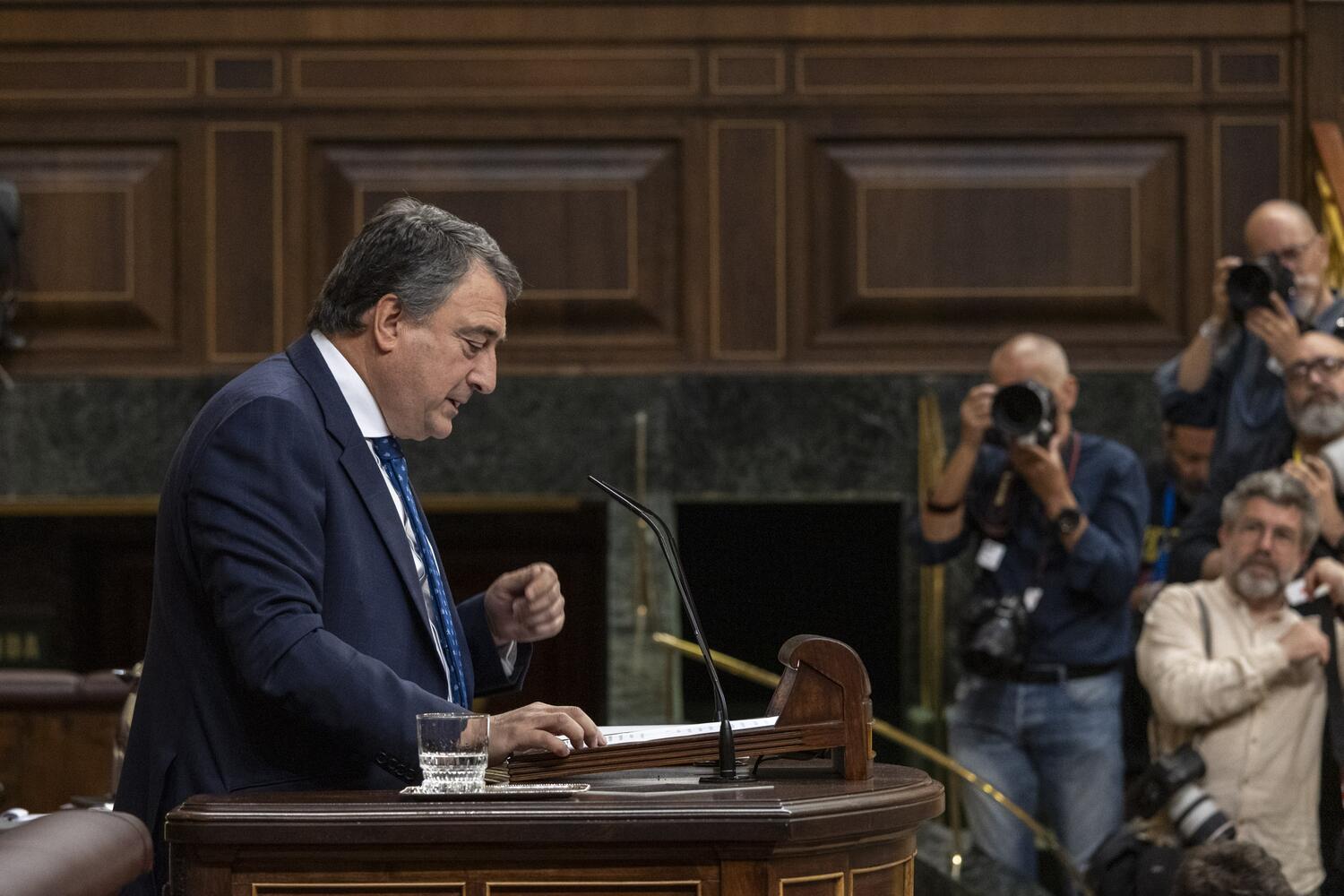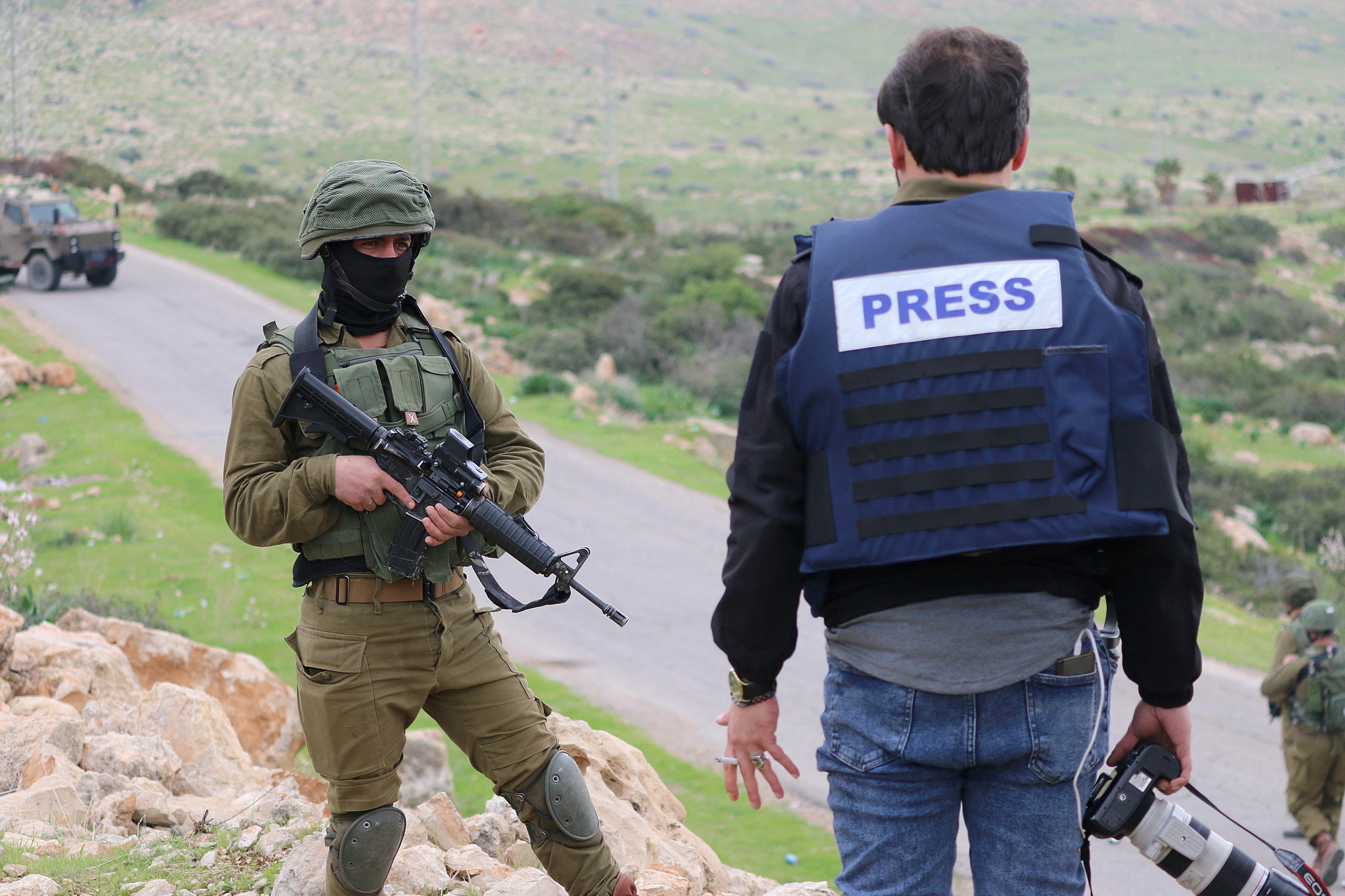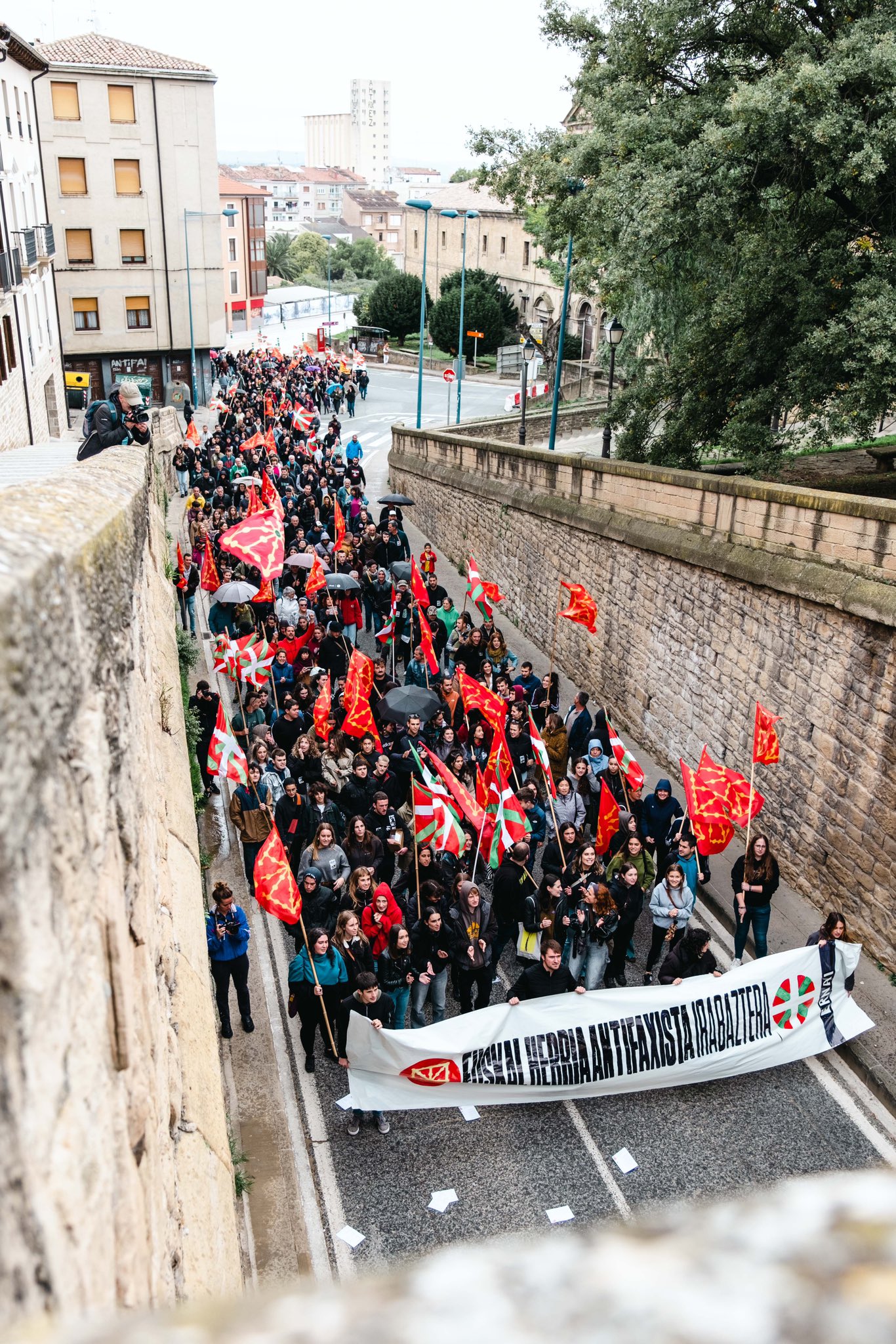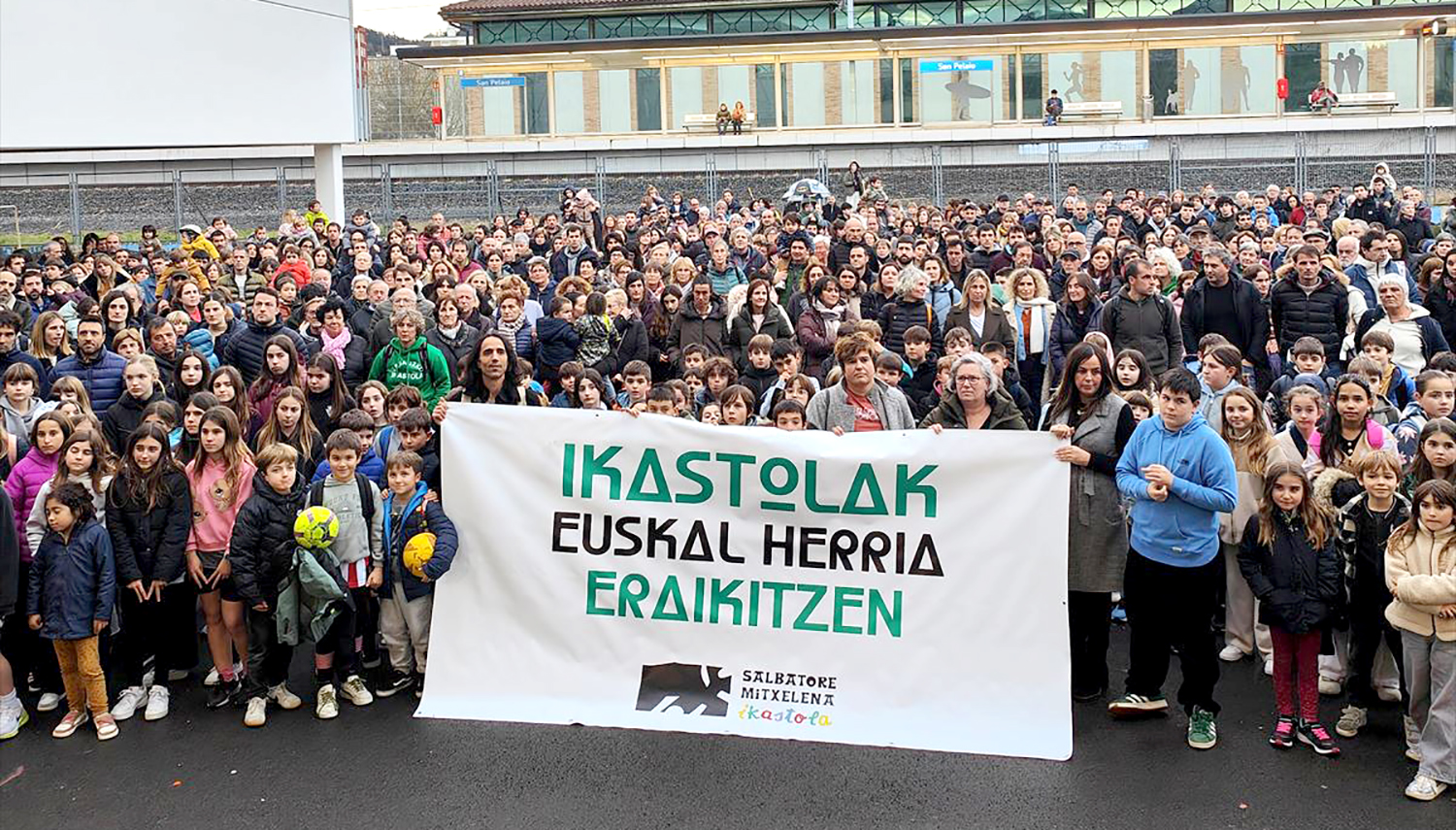"The Abertzale left owes an explanation to the people"
- He lives outside the field of information, but he has responded seriously to our questions. His vision of Basque society is as follows: “He is healing. What has happened to us has been very hard. Not only for ETA, but also for the Civil Guard. We have all had a very bad time, some worse, because life has been played, and others, as spectators, not so involuntary, but because we have experienced a terrible drama. The conflict has filled much of our life, we now need a distension. Some want to forget everything, others see that the evolution of the conflict is not going well. Society is in a resting phase”.
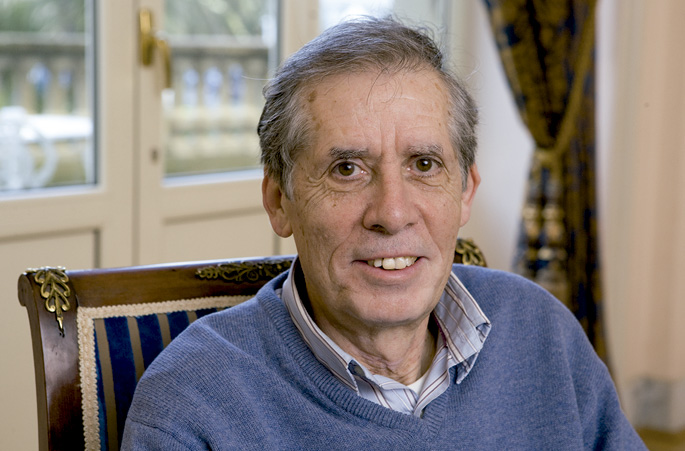
Where do you locate the Basque conflict?
In my life. Maybe that's a lack of humility. But that's what I'm sure. Otherwise, how do you respond? How far do you want to go? Until the history of Navarra... Where exactly are we at the beginning of the conflict? The facts are included in the section on things that should never have happened. Unfortunately, they've happened and we have to learn how to take them.
How do you see Basque cheese now?
Having lived through and discussed everything, I have a description of what has left us. What I call conflict places it in ETA's determination. There have been several ways of dealing with this problem, but for me what we have come to call the Basque conflict is the action of ETA. This has conditioned the way of dealing with the problems of Euskal Herria, and what has marked the political framework for the Basques to live together.
It should be clarified. At the time when ETA was born, many Basques – I find it difficult to quantify it – had an idea of people, which clashed with a certain idea of Spain, which was imposed on them. They decided to fight him. The problem is that there were also other Basques who had the idea of their people, and who did not join what ETA was becoming ETA. Confronting the idea of Spain led the ethnic groups to the military struggle against oppressors. But the enemy circle spread progressively. The strictly military work led ETA to close its ideological field. His struggle took on the character of what he was fighting for, and ETA became the military imposition of a particular idea. It is true that those of ETA can argue that they were not fighting to impose the idea of a particular people, but to express what the Basques want to be. However, in the evolution of the process, in which there has been a process, ETA has ended up fighting those who did not think like them.
What parameters does conflict place in the international context?
At the international level, the conflict is small, almost insignificant. In part, 9/11, the terrorist phenomenon, placed ETA’s struggle in its dimension. We realized the toys we had in our hands. We're scared. Because what we lived had another dimension or could have acquired it. It was a bath of realism. Then, we have taken another bath with all the initiatives carried out to internationalize the conflict. At the international level, the conflict here has always been treated as they did in the village of Galia. This does not detract from the fact that the conflict had not been addressed in any other way. Because to end ETA all the means – eleven tricks and tricks – have been used, they have taken political advantage of the existence of ETA.
To what extent has the Spanish State used ETA?
The State has been agreed by ETA to curb the Basque conscience and identity of a nation that wants to be an independent political subject. The Spanish governments have been able to use ETA to obstruct nationalist unity, to the point of making impossible the political idea of a united people and our people. Completely true? I can't know. But they did think that way. I cannot say more.
Is there a peace process?
No. Let us not fool ourselves. There are sincere attempts to ensure that everything that has happened to us ends in the best possible way. There is no process because it does not move forward, technically speaking. Nothing has been done between the parties that have been in the “conflict between them” to achieve peace, or rather to put an end to this situation. Society is slowly awakening. After 50 years of traumatic experience, he is in a process of calm to see things from one side to the other. Looking at the future and self, thoughtful.
Can the conflict be ended in an orderly manner?
Saying and making an orderly ending means that “there are no untied threads left” so that what has happened is not repeated. The Government is urged to act in an orderly manner. Unfortunately, however, it has done nothing, and it also takes advantage of the situation to political and ideological entanglement of the political environment. It may seem to the government that the best way to cure ETA’s “grain” is to let it rot. Apply it to society as a vaccine until the grain becomes a nardo. For society to learn that you don't have to repeat what happened. What is happening in politics is analysed by the citizens as a result of these causes. But there are calculations for the current political situation to be as it is. The State has no interest in the conflict ending quickly, it does not want an impression of recognition by ETA to stop. In addition, the State has another desire: Draw a lesson for Basque society from the end of ETA. This is channeled through the famous story.
How do you see the story?
There are ways to make the story. According to a certain theory of the story, the end to this situation has to make it very clear who the murderers are and who the victims are. What are the obligations of the guilty parties and what are the rights of the injured? Therefore, the story cannot be made by the history of ETA. This behavior establishes pre-approaches to how to finish. According to this theory, reports that may give rise to misconceptions should be avoided.
More than a story, stories are needed.
Of course. Everyone lives the facts in a way. The only valid account is the one that each makes. However, there is much to say about journalistic language, to count the facts with a certain “facticity”. Inalienable. At the moment, however, I think it is utopian to make a story, if one wonders who is good and who is bad. When do you start to tell what happened, what component do you introduce? How do you say it: you mine and I yours? In any case, let it be decisive and empathetic with the suffering of all.
Some sectors accuse the Basque left of not empathizing with the victims. Do you see it like this?
If you want my truth – the question is not easy – on the left Abertzale I reproach you – on the left Abertzale political, attentive, political – that you have not realised what was happening and, if you realised, you have not stopped the scourge we have experienced. In other words, it has moved from the idea of opposing dictatorship, which impedes the development of the idea and project of the people, to wanting to impose on the people themselves the way of understanding their own reality. Basque society could legitimise ETA’s struggle, but it relinquished this form of progressive action. It is terrible that the Abertzale left does not perceive it and, if he perceived it, does not stop. The Abertzale left owes an explanation to the people.
How do you see the situation of the prisoners?
To make it clear: the situation of prisoners is unacceptable, condemnable. The prison policy has in no way helped ETA and the Abertzale left to evolve what was being asked of them. The subject is very complex. For an organization to recognize that it's guilty, that it's wrong, it's not just problematic, it can generate disbelief and internal division. It is problematic because not everyone has experienced the ETA phenomenon in the same way, because they do not think the same and can abandon part of the militancy, “those who have committed themselves most to the idea” in their language. The easiest thing is to say “ETA has to disappear”. Tell the 450 prisoners, their friends, family and the group of thousands of people: “That’s OK!” It is logical that ETA and the Abertzale left intend to refine all the means to ensure that the end that corresponds to that environment suffers the least damage, as well as to avoid lateral damage to their political idea. We all have to understand that. The consolidation of coexistence is very difficult. When the ideological political-military conflict has to be ended, the last “exchanges” are complicated. Peace, justice, impunity and forgiveness can be understood in a thousand ways.
Zer deritzozu ezker abertzalearen aldebakarreko estrategiari? Nola ikusten duzu ekimena gaur egun?
Egokia izan zen, bere garaian. Egoera ikusita, argi zegoen, bestaldekoek oztopoak jarriko zizkiotela. Bateragune auzia, lekuko. Baina, egoera zena izanda ere, ezker abertzaleari hau esatea falta izan zitzaion: “Jaun-andreak, hau beste garai bat da, eta esaten ari garenak ez du zentzurik”. Eta horrek ez du “ni naiz erruduna” esatea nahi. Hasten bagara atzera egiten eta nork piztu zuen sutea argitzen... Kontua da sutea daukagula, eta itzali behar dugula, eta ez daukagu suhiltzailerik laguntzeko. Bateragunekoek sutea itzaltzea erabaki zuten, erretzeko arriskuaz, bistan da. Hasteko, ez baitituzte Estatuak dituen suhiltzaileak –teknikariak, kasurako– hainbat gauza egiteko.
Nola ikusten duzu ETA?
Bestela pentsa dezakeenarekiko errespetu guztiarekin, ETA ez da ezer. Jakina, hau diot, erakundeaz ideiarik izan gabe. Niretzat, ETA arazoa besterik ez da.
Zer iritzi duzu desarmeaz? ETA saiatu da desarmatzen.
Gauzak ikusi behar dira eboluzio batean. ETAk badu bere buruari buruzko irudi bat, badu bere egitekoen oihartzunaren ideia bat, bere historian urte askotan egiten zuenak oraindik ere gizartean eragiten duen ustea. Bere ideia da. Baina, gauzak aspaldi aldatu ziren. Adibidez, egin zuen desarme ekitaldia egin orduko gizartea ETAren sinbologiatik oso urrun zegoen. Ekitaldiak “barregura” emango zien batzuei, baina ETAkoentzat ziur ez zela horrela izan. Haientzat, akaso, armaren entrega biziki esanguratsua izango zen. Arma multzo hutsala izan arren, libreki, bitartekari batzuen bidez, armak entregatzea transzendentziazko saio bat izango zela. Baina gatazkak eboluzionatu duen moduan ikusita, ekitaldia interpretatzeko kodeak ez dituen ingurunean erori zen, gizarteari, batez ere, grazia egin zion.
Gaia ez da erraza, zeregin zaila da.
Desarmea oso eginkizun zaila da, areago Estatuak inolako erraztasunak ematen ez dituenean. ETAk edozein mugimendu egiten duenean neutralizatua izan daiteke, eta politikoki instrumentalizatua. Ez dauka erraza. Eta aldi berean, azken ontziak ez erretzearen aukerari eusten dio nonbait, bukaera modua emankorragoa izan daitekeelakoan. Erakunde militar batentzat oso zaila izan behar du ekimen hori, eta zer esanik ez, erabaki horiek hartu behar dituztenek esperientziarik ez badute, urteetan lanean aritu diren pertsonak ez badira. Ez da IRAren kasua, elkar ulertzeko.
Zer iritzi duzu EAJren jarrerari buruz, bake prozesua dagoen egoera honetan?
Ea… Denbora luzez esan genuen, nik behintzat esan nuen, hau ez zela bukatuko eragile bakoitzak nahi duen eran. Modu batez edo bestez bukatzea, onuragarriagoa izango delako batzuentzat edo besteentzat. Hori erabakigarria izan da gatazkaren bilakaeran, eta orain ere erabakigarria izaten segitzen du. Aieteko Adierazpenaren ondoren, ezker abertzaleak aurrerapauso nabaria eman zuen hauteskundeetan [EH Bilduren emaitzez ari da], orduan, besteek esan zuten: “Azkenean hauek jasoko al dituzte intxaurrak?”. EAJk ez dio erraztasunik emango ezker abertzaleari bake prozesuaren egungo egoeran, haien arteko aurreakordio posibleetara iristeko.
Ezker abertzalea nola ikusten duzu?
Gipuzkoan esaterako, botere politikoa hartu zuenean, ez zuen ulertu gizarteak pausa behar zuela, ez zela unea esateko: “Orain, beste urrats bat aurrera”. Bestela egin behar zuen, adibidez: “Ea, osatu dezagun gizartea”.
Espainiako hauteskundeak datoz, gobernua aldatuko balitz, aukerarik ikusten diozu bake prozesuari?
Ezker abertzaleak nahi izan duen errebindikazio politikoen bitartez ez dut ikusten. PPri ez zaio interesatzen, ez daki egiten ere. PSOEren aldetik ezer gutxi espero dut, edo batere ez. Gai horretan koldarra delako. Ikusi du PPri politika modu batez edo bestez egiteak ez diola kostu politikorik ekartzen, beraz, gobernatzera iritsi bitartean, ezer ez. Gobernura itzultzea ez dut ikusten orain, eta iritsi bitartean ez da batere mugituko. Podemos-en kasuan ezin dugu ere oraingoz ezer espero. Arazoa oso handi datorkio. Espainiako Podemosi buruz ari naiz, hemen egon daiteke Podemoseko bat edo beste, bestelako jarrera batean. Agian, Estatuaren eredua alda dezakete, baina ETAren gaia eta euskal gatazka handiegia da eurentzat.
“It happened once and since then it happens every day [...] let’s not see what happens here. Such is the world, and no one today is a prophet in his dominion.”
I’ve been told about something else since time and time, I can’t see anything else and nothing I would... [+]
There are three knots that complicate our coexistence in the Basques, and for many years, despite our patience and determination, we are unable to break free from these ties. There are at least three knots of the moment: prisoners, Basque, immigrants.
With the new year we are... [+]







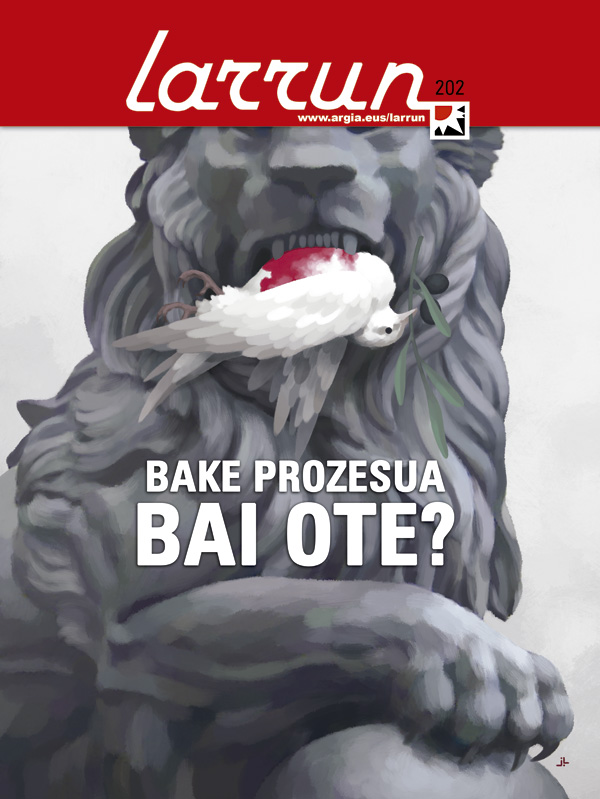

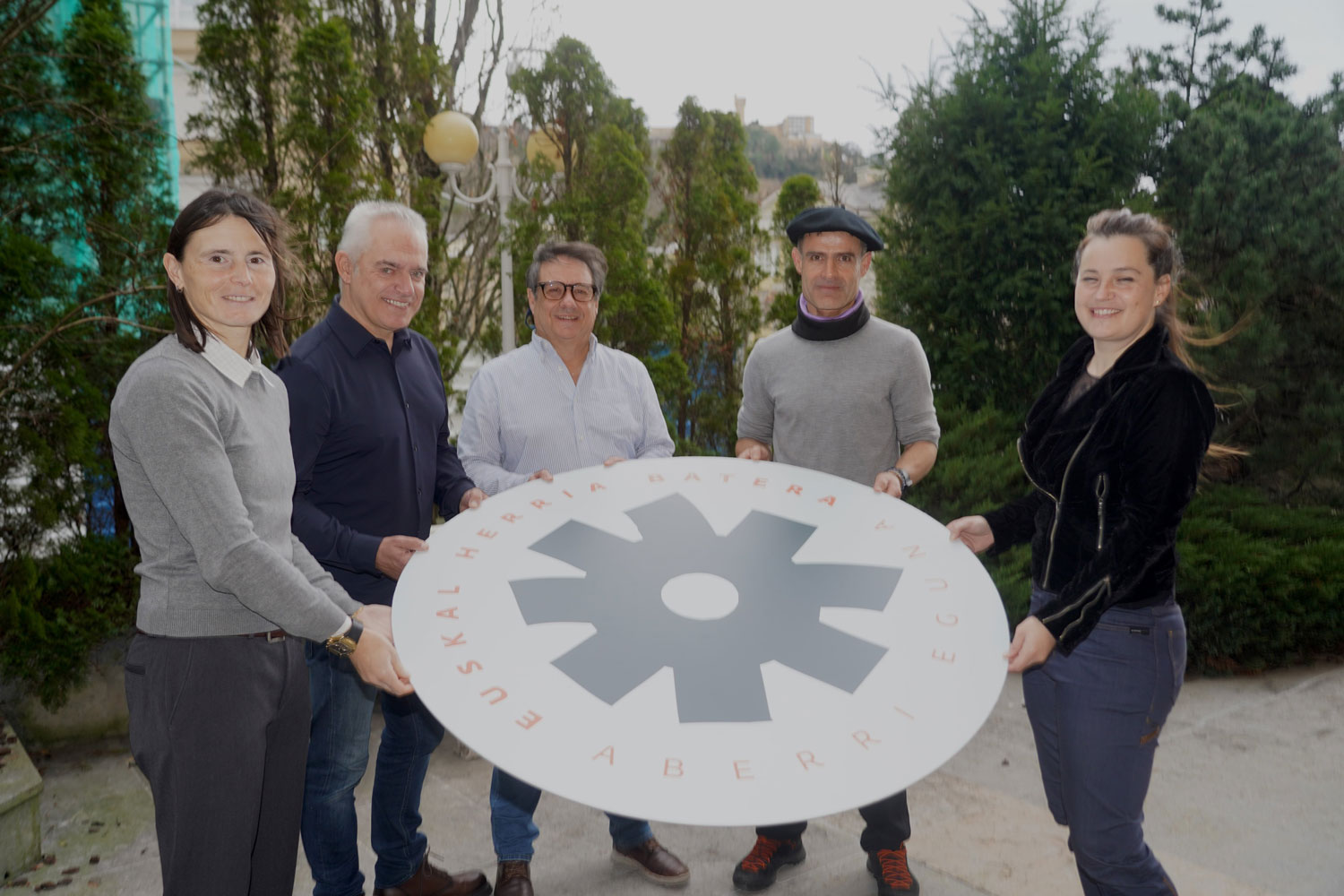
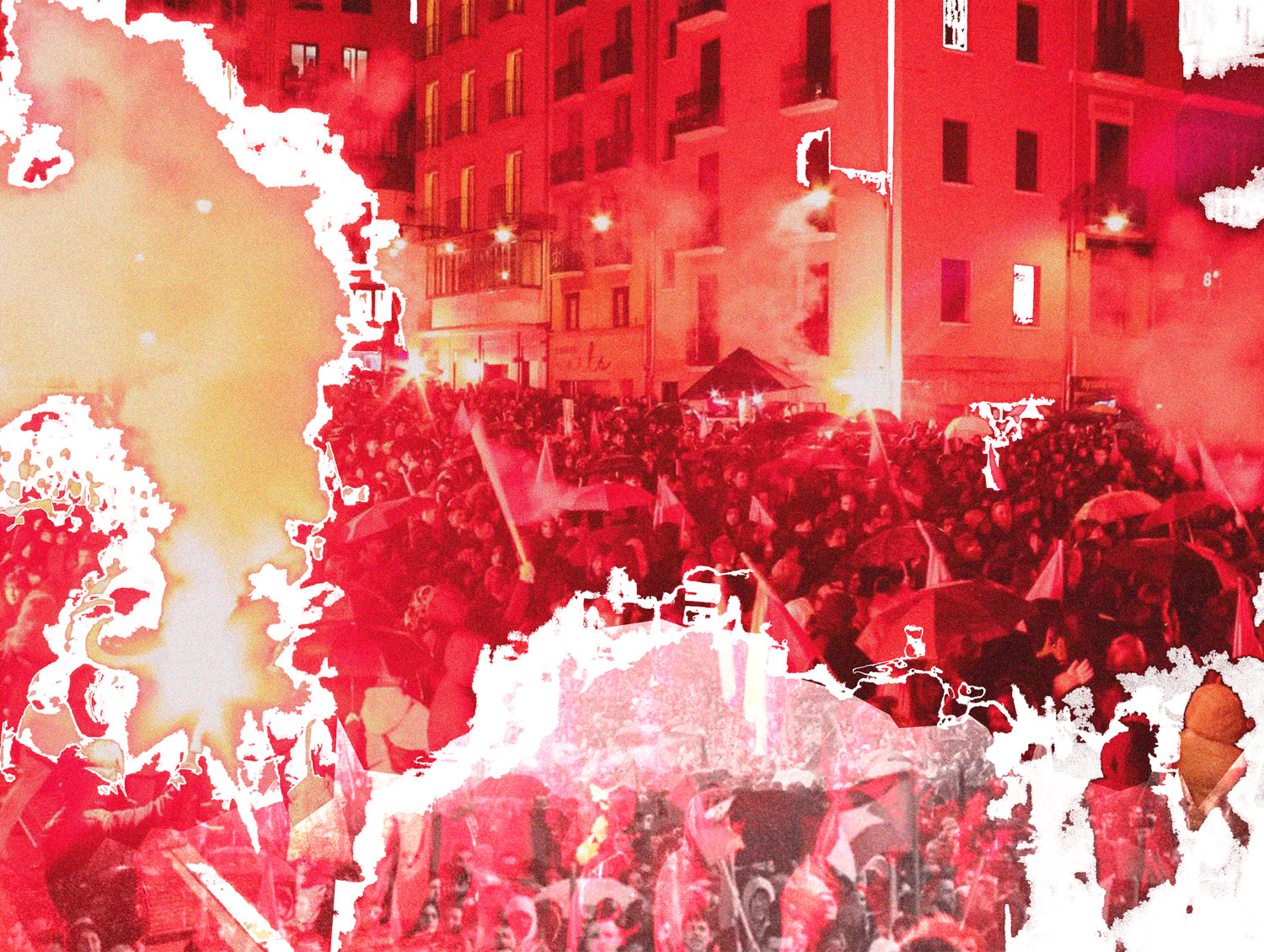
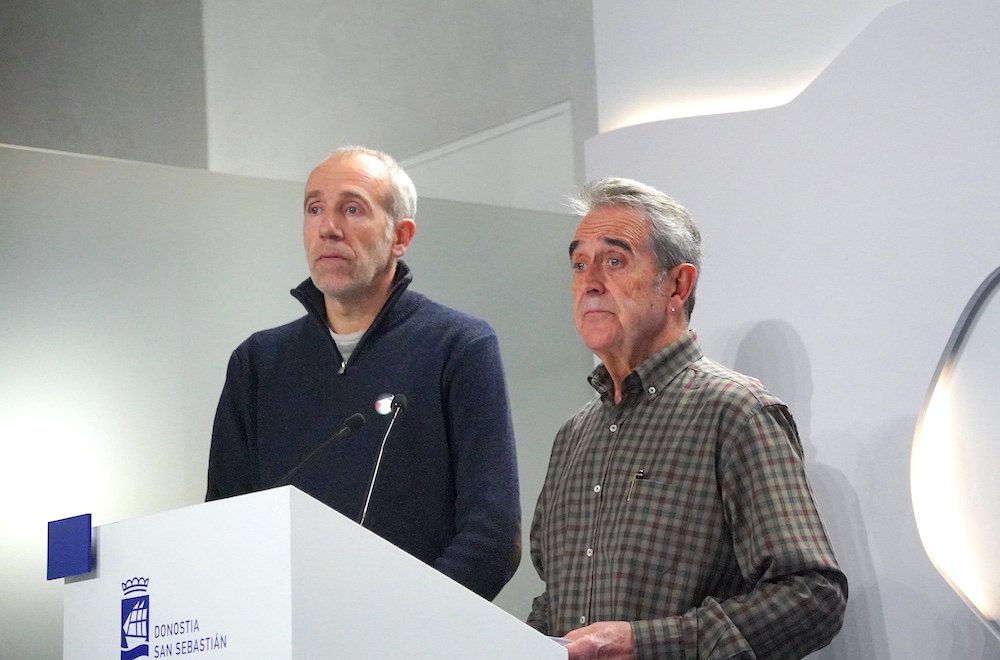
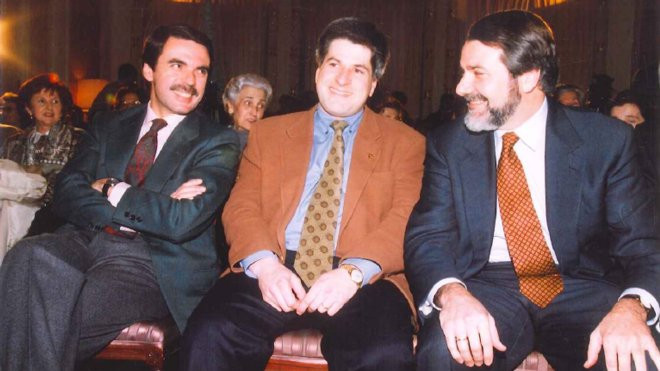
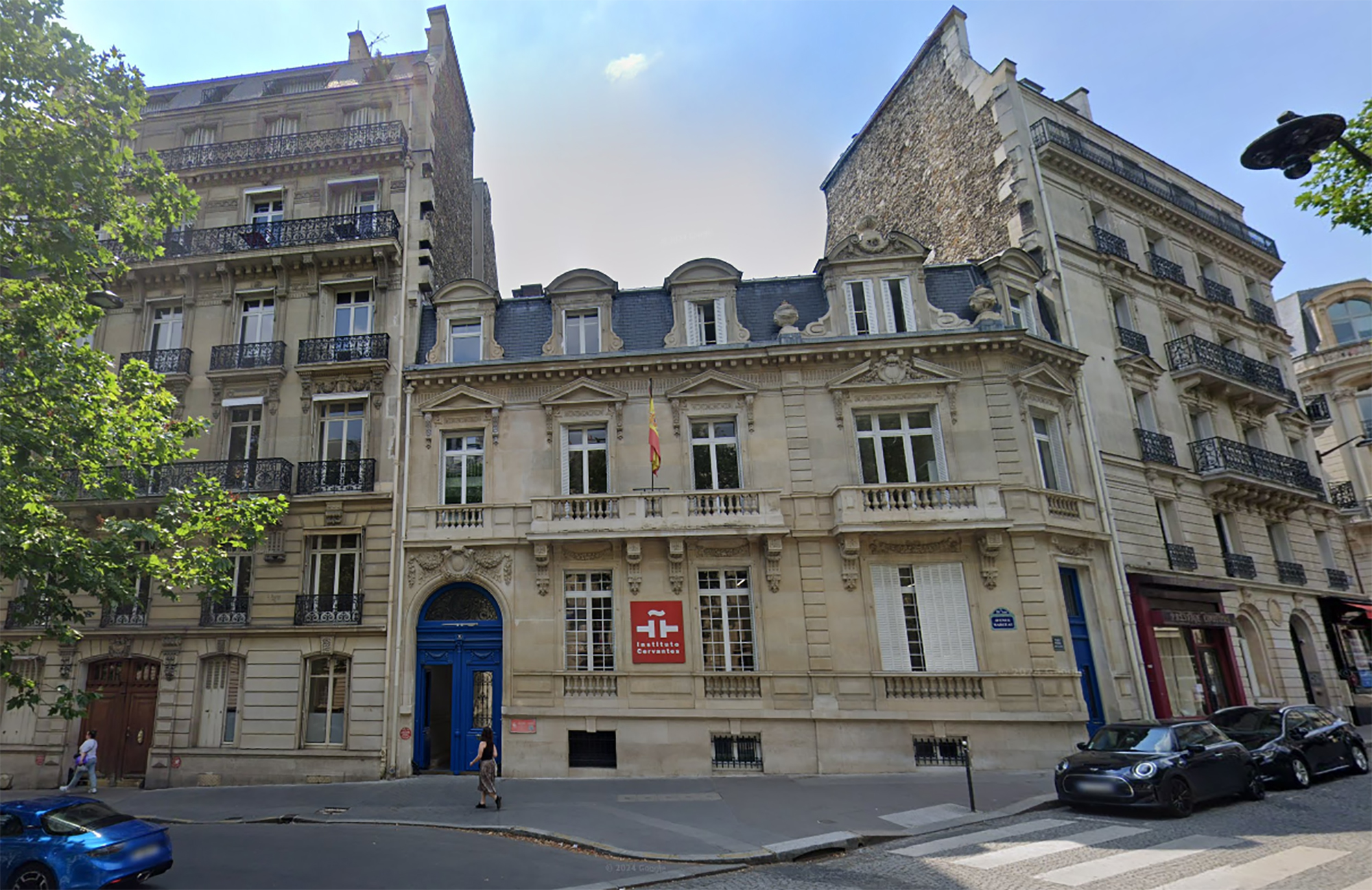
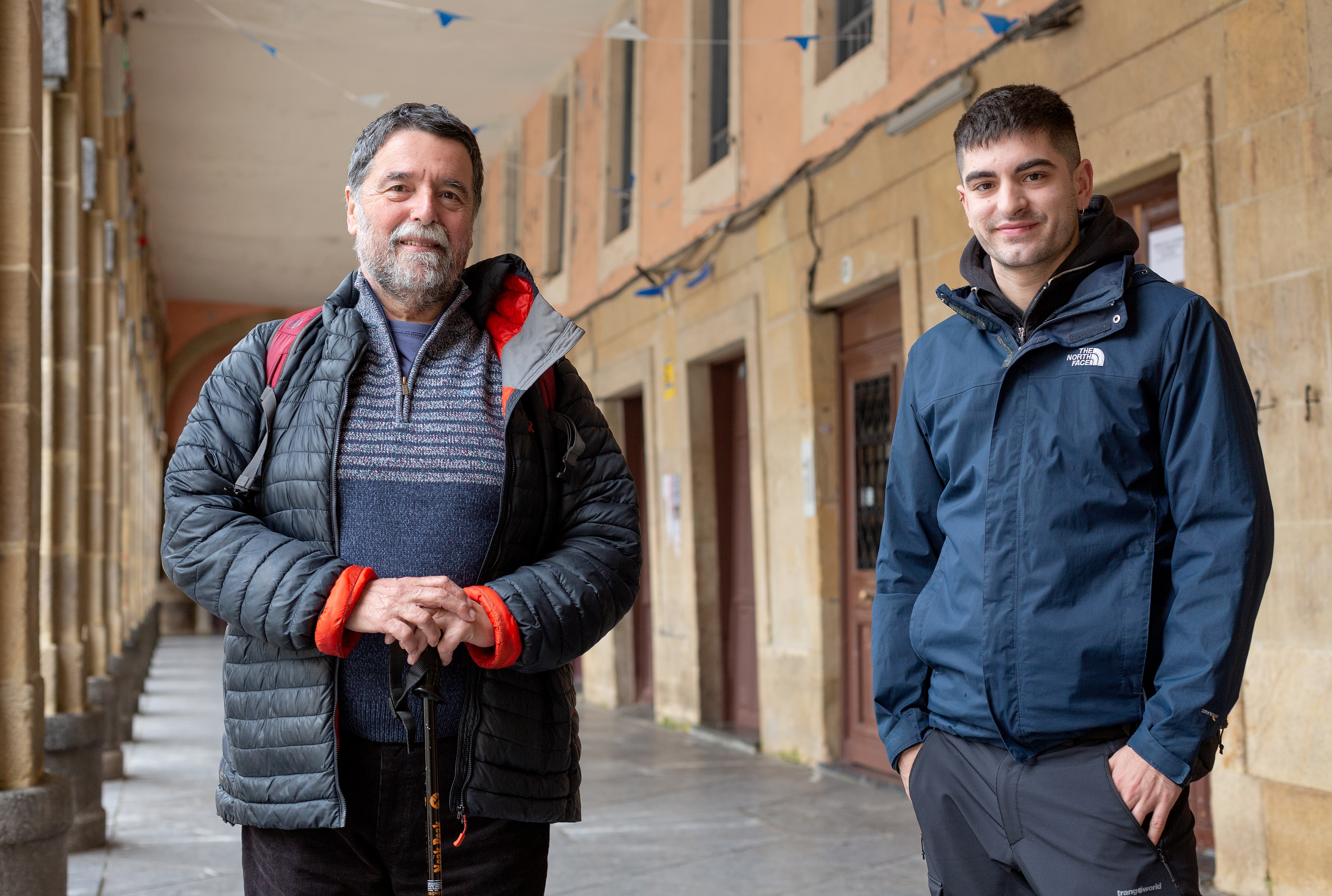
.jpeg)

